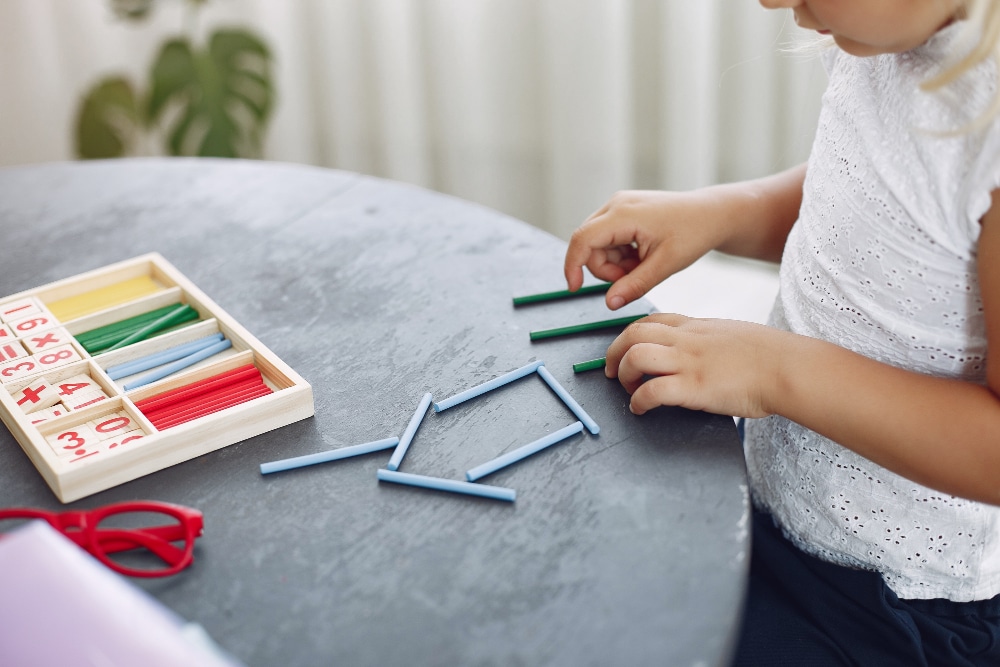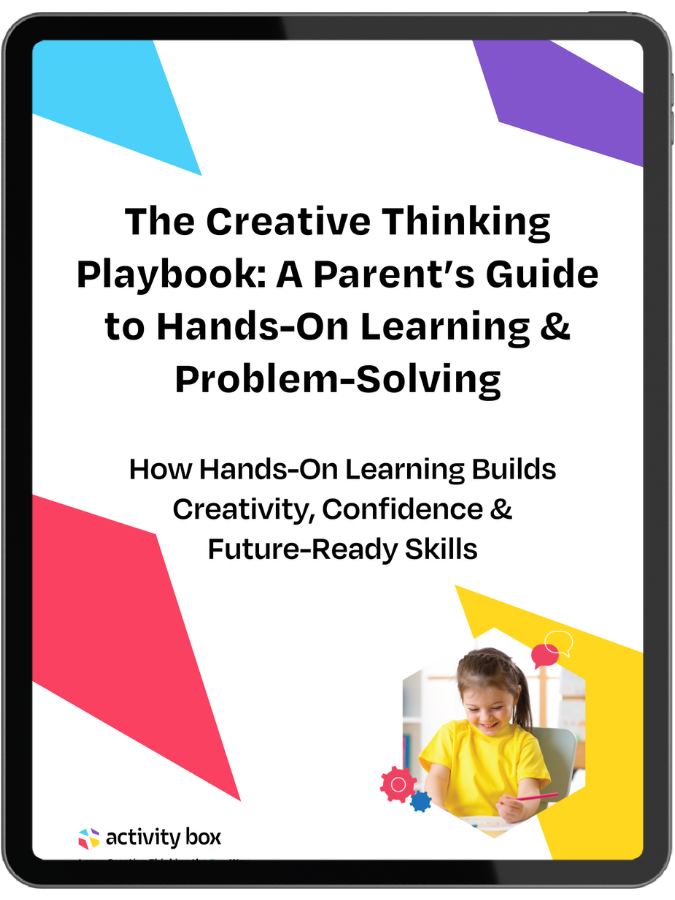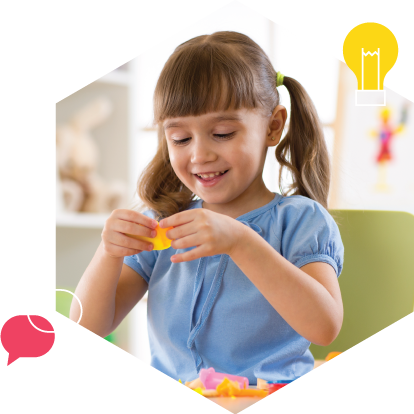
Cognitive Benefits of Creative Play: How Hands-On Creativity Improves Brain Function & Learning
Key Takeaways
| Why This Topic Matters | Creative play strengthens cognitive development, supporting memory, problem-solving, and executive function. |
| Brain Growth & Learning | Hands-on activities activate multiple brain regions, improving thinking skills. |
| Problem-Solving & Flexibility | Encourages trial-and-error learning and adaptive thinking. |
| Long-Term Academic Impact | Enhances focus, language development, and innovation. |
| Practical Applications | Parents and educators can nurture brain growth with open-ended, play-based activities. |
Why Creative Play is Essential for Brain Development
Did you know that children who engage in creative play develop better memory, problem-solving, and adaptability skills? Research shows that hands-on, imaginative activities stimulate brain growth, improving cognitive flexibility and critical thinking.
In this article, we’ll explore how creative play boosts brain function and how parents and educators can incorporate it into daily learning.
Related Read: What is Creativity in Early Childhood?
How Creative Play Shapes Brain Development
The Science Behind Play and Cognitive Growth
Creative play isn’t just fun, it’s a powerful tool for brain development. Neuroscientists have found that hands-on experiences stimulate neural connections, strengthening cognitive skills.
Explore more about developmental milestones in early childhood.
Research Insight:
According to the Harvard Center on the Developing Child, play-based learning strengthens executive function, which includes:
Memory retention – Storing and recalling information.
Cognitive flexibility – Adapting to new challenges.
Self-regulation – Managing emotions and focus
External Source: Read the full Harvard study
Additional Research: A study from Texas Christian University highlights that play not only improves cognitive growth but also strengthens socio-emotional skills, helping children process and retain new concepts more effectively.
The Cognitive Benefits of Creative Play
Enhancing Memory and Learning
Creative activities activate multiple brain regions, reinforcing long-term memory and understanding.
Example:
When children create a story with puppets, they use verbal memory (recalling words) and sequential memory (structuring events logically).
Memory-Boosting Activities:
Solving puzzles
Painting or drawing to recall past experiences
Storytelling with props
Related Read: The Role of Imaginative Play in Cognitive Growth
Strengthening Problem-Solving and Adaptability
Creative play encourages divergent thinking: the ability to generate multiple solutions to a problem.
Example:
A child building a bridge with blocks will test different structures, refining their approach each time.
| Creative Play Activity | Cognitive Skill Developed |
| Building with blocks | Problem-solving & spatial awareness |
| Making up a new game | Critical thinking & rule-making |
| Experimenting with colors in art | Decision-making & adaptability |
Related Read: Creativity and Problem-Solving in Early Learning
Boosting Language and Communication Skills
Engaging in role-play, storytelling, and creative discussions helps children develop strong language skills.
Example:
Pretending to be a shopkeeper teaches vocabulary, sentence structure, and conversational skills.
Language-Boosting Activities:
Role-playing different characters
Story creation with visual prompts
Puppet shows for expressive communication
Related Read: How Creative Play Enhances Emotional Intelligence
Developing Focus and Attention Span
Unlike passive screen time, creative activities demand concentration and persistence, improving attention span.
Example:
A child working on a craft project must plan, adjust, and complete steps, building focus.
Focus-Enhancing Activities:
Painting intricate designs
Building a complex LEGO structure
Following a step-by-step activity guide
Explore More: Give the Gift of Monthly Creativity Kits

Get the Free Creative Thinking Playbook
Learn how hands-on play helps your child develop problem-solving, creativity, and confidence, without screen time or prep.
Hands-on, screen-free activities
Printable planner included
Stress-free and fun for parents
Expert-designed, child-approved
Long-Term Impact of Creative Play on Academic Success
How Creativity Prepares Children for Future Learning
Play-based learning lays the foundation for future academic achievement. Studies show that children who engage in creative activities perform better in subjects like math, science, and reading.
Research Insight:
A study by Michigan State University found that early exposure to creative activities predicts success in STEM fields.
Read the full Michigan State study
Additional Research: The Parenting Styles study highlights how play enhances intelligence, leading to higher IQs and stronger cognitive, linguistic, and social skills.
How Parents and Educators Can Foster Creativity
Simple Play-Based Activities for Brain Development
| Activity | Cognitive Benefit |
| Sensory bins (rice, beans, or sand) | Develops fine motor skills & focus |
| Storytelling with pictures | Enhances memory & verbal skills |
| Building structures with recycled materials | Encourages problem-solving |
Explore More: The Role of Creativity in Early Childhood Development
How Schools Can Integrate Creativity into the Classroom
Project-Based Learning – Let students build, design, or create solutions
Choice-Based Activities – Offer flexible learning paths
Interdisciplinary Play – Integrate storytelling into science or math lessons
Related Read: How Imaginative Play Develops Cognitive Growth?
Key Takeaways and Next Steps
- Creative play enhances memory, problem-solving, and focus.
- It builds cognitive flexibility, language skills, and academic readiness.
- Parents and educators can nurture brain growth through hands-on, open-ended activities.
Support your child’s brain development with hands-on learning kits from ActivityBox!
FAQs About Early Childhood Development
Q: How does creative play impact cognitive development?
A: Creative play strengthens memory, problem-solving skills, and executive function, helping children think flexibly.
Q: What are the cognitive benefits of hands-on learning?
A: Hands-on learning improves focus, decision-making, and critical thinking, making concepts easier to understand.
Q:How does pretend play help brain growth?
A: Pretend play activates multiple brain regions, improving language development, social skills, and adaptability.
Q: What are some brain-boosting activities for kids?
A: Storytelling, building with blocks, role-playing, and sensory play all enhance cognitive growth.
Still have more questions?
We’re here to help! Contact us →
